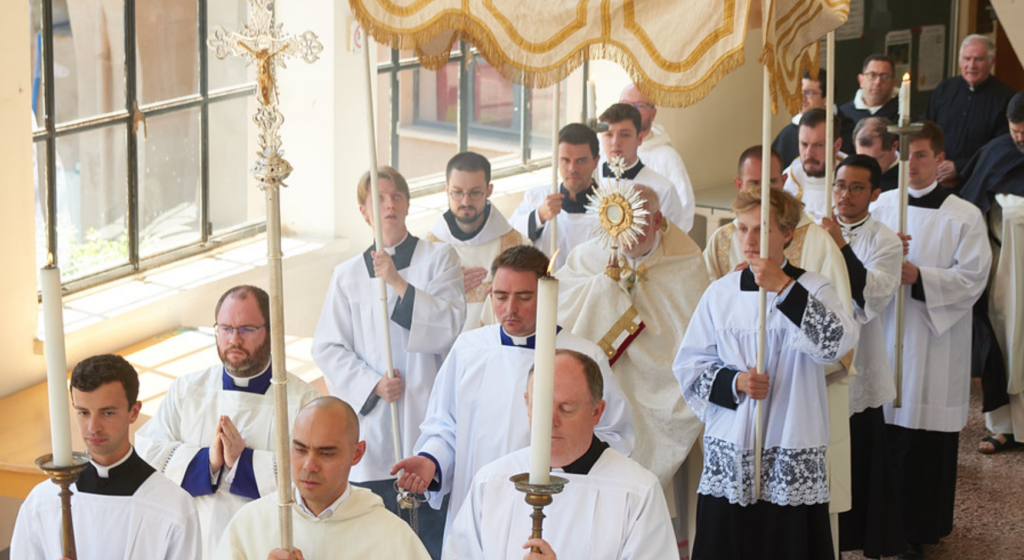中世纪哲学 中的信仰与理性 | Faith and Reason in Medieval Philosophy

- This event has passed.
中世纪哲学 中的信仰与理性 | Faith and Reason in Medieval Philosophy
May 15 at 08:30 - 10:30

中世纪哲学 中的信仰与理性
Faith and Reason in Medieval Philosophy
演讲者: 赵敦华
2021年5月15日星期六下
午2时30分至4时30分
语言:中文
Presented by Prof. Dunhua Zhao
15 May 2021
14:30 Beijing / 8:30 Rome
Presentation in Chinese
“中世纪”不仅是一个世界史概念,而是一个哲学概念。哲学史上,中世纪是“中间”,上承古代哲学之余绪,下开近现代 (modern) 哲学之先河。哲学史意义的中世纪哲学包括从2世纪开始的教父哲学、从11世纪开始的经院哲学,以及15-16世纪的晚期中世纪哲学。在这三个大的阶段,宗教信仰和希腊哲学既相结合,又保持着张力,信仰与理性关系是哲学其他问题的枢纽。我们可以看到这样一种带规律的现象:在中世纪哲学重要转折时期总会出现信仰派、理性派和综合派三种立场,信仰派往往暂时占上风,但最终胜利的总是综合派。在教父时期,信仰派最初表现为原教旨主义,理性派则以诺斯替异端为代表,而以奥古斯丁为代表理性辩护主义最终取得正统地位。在经院哲学诞生时期,理性派和信仰派的斗争表现为辩证法和反辩证法的对立,以安瑟尔谟为代表的辨证神学综合两者,成为正统派。13世纪亚里士多德主义传入后,理性派和信仰派表现为拉丁阿维洛伊主义和波那文图那主义之间的斗争,综合两派立场的托马斯主义最终取得正统地位。在中世纪晚期,奥康主义造成经院哲学的分裂,而人文主义思潮全盘复兴希腊-罗马的理性文化,宗教改革派“唯有信仰”的神学为早期近代哲学开辟了道路。
赵敦华,卢汶天主教大学博士 (1988),北京大学博雅讲席教师,全国高校名师。他的相关中文著作包括:《圣经历史哲学》2卷 (2012),《基督教哲学1500年》(1994),《普罗丁》(1998),《中世纪哲学十讲》(2019)
本场讲座是多玛斯研究所、美国圣母大学北京国际中心、
“Middle Ages” is not only a concept of world history but also a philosophical concept. In the history of philosophy, the middle ages means the “medium,” which inherited the ancient philosophy and started the modern philosophy. Medieval philosophy includes the patristic philosophy from the 2nd century, scholasticism from the 11th century, and the late medieval philosophy from the 15th to the 16th century. In these three stages, religious faith and Greek philosophy were combined and remained in tension. The relationship between faith and reason is the pivot of other philosophical issues.
We can see such a regular phenomenon: in the important turning period of medieval philosophy, there will always be three kinds of positions: the feudalists, the rationalists and the comprehensives. The feudalist often have the upper hand temporarily, but the comprehensives always win in the end. In the patristic period, the feudalists initially manifested themselves as Biblical fundamentalism, while the rationalists represented by the gnostic heresy, and the rationalism represented by Augustine finally gained the orthodox status. During the birth of scholasticism, the conflict between rationalists and feudalists was manifested in the opposition between dialectics and anti-dialectics. The dialectical theology represented by St. Anselm integrated the two and became orthodox. After the introduction of Aristotelianism in the 13th century, rationalists and feudalists showed the conflict between Latin Avelloism and Bonaventunism, and Thomism which integrated the positions of the two schools, finally gained the orthodox status. In the late Middle Ages, Ockhamism caused the separation of scholasticism, while humanism revived the Greek Roman rational culture. The theology of “only faith” of the reformists opened up the way for early modern philosophy.
Zhao Dunhua is a Boya Chair Professor at Peking University, National Teaching Celebrities in Higher Education. He received Ph.D. at KU Leuven in 1988. His books written in Chinese related to the topic of this lecture include The Philosophy of Biblical History, 2 vols. (2012), Christian Philosophy in 1500 Years (1994), Plotinus (1998), Ten Lectures on Mediaeval Philosophy (2019).
This lecture is the second in a series on Western Medieval Philosophy co-sponsored by the Thomistic Institute at the Angelicum and the Beijing Global Gateway and the Jacques Maritain Center at the University of Notre Dame in the United States. All registrants will receive a video recording of the lecture after the meeting.
报名链接/Register:yoopay.cn/event/98468756


